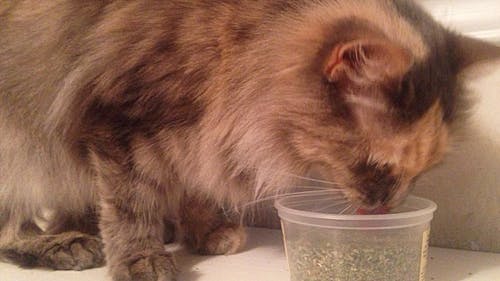Rutgers creates ‘super catnip,’ to be available by seed in 2017

The Rutgers New Jersey Agricultural Experiment Station (RJAES) created a "super catnip" that may just cause farmers and cats to grin like a Cheshire.
Catnip is a perennial with aromatic oil that triggers a reaction by some cats, which causes them to become hyperactive, according to Rutgers Today, and also acts as an insect repellent.
The RJAES recently licensed the catnip — called CR9 — to Ball Horticulture, an Illinois company that will produce the seeds for commercial farmers, according to Rutgers Today.
“In the past, catnip wasn’t grown much because the plant itself was never developed to generate commercially acceptable yields from its leaves and flowers, which produce its aromatic ... oils, and thus, wasn’t profitable,” said James Simon, professor in the Department of Plant Biology and Pathology and leader of the super catnip development.
The new product also has bigger leaves and flowers, which results in a longer shelf life, according to Rutgers Today. The size makes the process of harvesting better because it allows the catnip to be collected twice a year instead of once.
“We developed a super catnip that can survive northern winters and produce copious amounts of aromatic oil with a special composition that is rich in the bioactive compound that repels the mosquitos away and drives cats wild,” Simon said.
Simon said apart from the new plant's better harvesting capabilities, it is as efficient, if not better, than the most common pesticide in standard mosquito repellent: DEET.
“These new studies have identified that this extract from catnip is very effective in repelling mosquitos,” Simon said. “While mosquitos are an inconvenience to us here in the United States when we are outside and need to use an insect repellent lotion, or feel forced to go inside due to the mosquitoes, in other countries, people have to worry about the deadly diseases that are being transmitted by mosquitos.”
Simon also told Rutgers Today that the new breed of catnip outperformed all other commercial catnip lines currently available on the seed market and should be available as seed by 2017.



